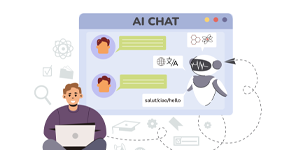What is an Exit Interview and What is the Purpose?
Employee turnover is a natural part of the business cycle. Employees depart companies on a daily basis for a variety of reasons, including cultural mismatch, higher pay or professional advancement. However, their departure doesn’t have to be the end of the story. In fact, it can be the beginning of meaningful insights. That’s where the departure interview comes in.
So, what is an exit interview? It’s a golden opportunity for companies to learn from past mistakes and create a better workplace environment. In this detailed guide, we’ll cover what is a departure interview from a job, why it’s important, how to conduct a departure interview, and the best exit interview questions to ask for maximum feedback.
What is an Exit Interview?
When an employee departs a company, a formal process called an interview for exit is held. Usually, a human resources representative or an impartial third party leads it. The goal is to gather candid feedback about the employee's experience the role, the work, environment and any areas that may need improvement.
So, what is an exit interview from a job in practical terms? It is a planned discussion that offers insights into team dynamics, management styles corporate culture and the reasons behind employees' final decision to quit. This process enables businesses to gain valuable information that current staff may hesitate to share.
Common Characteristics of an Exit Interview:
- Usually occurs during the last week of work.
- Surveys can be conducted online, over the phone, or in person.
- Open-ended exit interview questions are used.
- Promotes secrecy to encourage truthful responses.
Purpose of an Exit Interview
The purpose of an exit interview extends far beyond just saying goodbye. It’s a crucial tool in your retention and employee experience strategy. When done well, it can reveal the underlying reasons for discontent point out areas that need work and even open the way for future new employees also.
Key Objectives:
- Understand why employees are leaving.
- Uncover recurring workplace issues.
- Strengthen employee engagement strategies.
- Benchmark industry compensation and benefits.
- Improve leadership effectiveness.
Use Case Example:
A mid-sized IT company faced chronic attrition. They discovered that unclear career advancement and a lack of flexible work arrangements were the main issues after implementing a regular leave interview process. By introducing remote work policies and defined growth paths, they reduced voluntary exits by 35% over the next year.
How to Conduct an Exit Interview
Asking a few questions is only one aspect of conducting an interview for exit. It must be well-thought-out considerate and executed to have an impact also.
Step 1: Choose the Right Timing and Format
- Plan to conduct the departure interview for two to five days prior to the employee's last day of employment.
- Provide options for in-person, online or writing communication.
- Create a calm environment and solitude to promote candid comments.
Step 2: Prepare Targeted Questions
Curate a list of both general and specific exit interview questions. This helps guide the conversation while allowing room for elaboration.
Examples of Exit Interview Questions to Ask:
- What were the primary causes of your departure?
- Did your team and boss provide you with support?
- What aspects of your role did you enjoy the most and the least?
- Were your values reflected in the company culture?
- If you were in control what would you do better?
Step 3: Include Employee-to-Employer Questions
Allow the departing employee to ask exit interview questions to ask employer, such as:
- How is my feedback going to be used?
- Will you be addressing any concerns shared?
- Are rehires welcomed back if they apply in the future?
Step 4: Conduct the Interview Professionally
- Be a good listener. Let the employee speak without interruptions.
- Avoid arguing or defending company actions.
- Take notes or record with permission.
Step 5: Analyze and Respond to Input
- Study several exit interviews for patterns.
- Provide senior leadership with a summary of the findings.
- Create adjustments to management, training or hiring practices.
Top Exit Interview Questions to Ask
Well-crafted exit interview questions are key to discovering real employee experiences. To make the most of every conversation, consider the following grouped list:
Job and Role Clarity:
- Were your job responsibilities clearly defined?
- Did the role meet your expectations?
Work Environment:
- What would you say about the culture of the company?
- Did you receive fair and considerate treatment?
Administration and Assistance:
- Did you feel supported by your boss?
- How sensitive was management to the concerns of its employees?
Professional development and recognition:
- Are you satisfied with your professional development?
- Did you regularly receive compliments and remarks?
Benefits and Compensation:
- Did your pay match your location and position?
- Were the benefits sufficient to fulfill your needs?
Including these exit interview questions to ask guarantees that you obtain comprehensive insights that are advantageous to the entire company.
What to Say in an Exit Interview (for Employees)
If you're the employee leaving a job, knowing what to say in an exit interview is just as important as the questions being asked. Your opinion may help to improve working conditions for others or perhaps keep a positive relationship with your previous employer.
Dos:
- Be honest but professional.
- Use real-life examples to explain your feedback.
- Offer solutions or ideas for improvement.
Don’ts:
- Avoid gossiping or blaming individuals by name.
- Don’t make threats or burn bridges.
- Avoid generalizations without specifics.
Example Statement:
"I loved the teamwork and learning possibilities. However, a lack of feedback from supervisors made it impossible to evaluate my performance. Perhaps regular one-on-one check-ins might make prospective employees feel more led and appreciated."
Exit Interview Tips for HR Professionals and Managers
Here are proven exit interview tips to make the process more effective:
- Preserve consistency: To compare outcomes over time use a common template or collection of questions.
- Stay impartial: Refrain from becoming defensive or discounting criticism.
- Be mindful of confidentiality: Make sure to anonymize any comments you give management.
- Follow-up: Make the proposed adjustments to demonstrate that you appreciate the input.
These exit interview tips help HR teams develop a constructive offboarding process that strengthens company culture and retention.
Revisiting the Question: What is an Exit Interview from a Job?
Let’s reinforce the concept of what is an exit interview from a job. It's more than just a farewell custom. Gathering feedback is a strategic corporate technique that can improve employee happiness, lower attrition and spur internal improvements. When used effectively, exit interviews provide insights that are difficult to obtain while an employee is still working.
Employees leaving on good terms and feeling heard can become brand ambassadors, future collaborators, or even return to the organization someday. That’s why understanding what is an exit interview from a job matters greatly for both individuals and companies.
Conclusion
An departure interview provides an opportunity to obtain candid input that can lead to significant organizational change, making it more than just a standard procedure. When done carefully, with clear exit interview questions and a respectful tone, these sessions can uncover hidden issues, improve retention and strengthen your company culture.
Understanding what is an exit interview from a job helps organizations recognize the importance of each departing employee's input. With the correct methodology which includes knowing how to conduct an exit interview and having good exit interview advice, HR teams may use these discussions as strategic tools.
In short, every exit is an opportunity. Through the utilization of exit interview information, organizations can eventually develop, adjust, and retain outstanding personnel. Knowing what is an exit interview from a job and using it effectively sets the stage for continuous improvement.
Read More: Top Interview Questions in Cambodia (And How to Answer)





